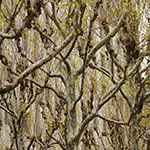Euroacademia Conferences
 Europe Inside-Out: Europe and Europeanness Exposed to Plural Observers (9th Edition) April 24 - 25, 2020
Europe Inside-Out: Europe and Europeanness Exposed to Plural Observers (9th Edition) April 24 - 25, 2020 Identities and Identifications: Politicized Uses of Collective Identities (9th Edition) June 12 - 13, 2020
Identities and Identifications: Politicized Uses of Collective Identities (9th Edition) June 12 - 13, 2020 8th Forum of Critical Studies: Asking Big Questions Again January 24 - 25, 2020
8th Forum of Critical Studies: Asking Big Questions Again January 24 - 25, 2020 Re-Inventing Eastern Europe (7th Edition) December 13 - 14, 2019
Re-Inventing Eastern Europe (7th Edition) December 13 - 14, 2019 The European Union and the Politicization of Europe (8th Edition) October 25 - 26, 2019
The European Union and the Politicization of Europe (8th Edition) October 25 - 26, 2019 Identities and Identifications: Politicized Uses of Collective Identities (8th Edition) June 28 - 29, 2019
Identities and Identifications: Politicized Uses of Collective Identities (8th Edition) June 28 - 29, 2019 The European Union and the Politicization of Europe (7th Edition) January 25 - 26, 2019
The European Union and the Politicization of Europe (7th Edition) January 25 - 26, 2019 7th Forum of Critical Studies: Asking Big Questions Again November 23 - 24, 2018
7th Forum of Critical Studies: Asking Big Questions Again November 23 - 24, 2018 Europe Inside-Out: Europe and Europeanness Exposed to Plural Observers (8th Edition) September 28 - 30, 2018
Europe Inside-Out: Europe and Europeanness Exposed to Plural Observers (8th Edition) September 28 - 30, 2018 Identities and Identifications: Politicized Uses of Collective Identities (7th Edition) June 14 - 15, 2018
Identities and Identifications: Politicized Uses of Collective Identities (7th Edition) June 14 - 15, 2018
Between Switzerland and Serbia: An Anthropological Look at Cross Discourses on “Otherness” and Their Epistemological Implications for the Researcher
-
-

-
Presentation speakers
- Michaël Busset, Laboratory of Cultural and Social Anthropology, University of Lausanne, Switzerland
Abstract:
As a Swiss anthropologist doing fieldwork in Serbia and in Kosovo for my PhD dissertation about Serbian pilgrimages in Kosovo, I have often had to deal, during informal conversations, with what I would call discourses referring to a ‘radical otherness’. Indeed, my Swiss relatives and colleagues and my Serbian interlocutors and friends often share a common point: they both have a tendency to look at my fieldwork and at my birthplace through clichés considered whether with doubt or taken for granted. The socio-historical contexts of Serbia and Switzerland surrounding my research could explain most of the stereotypes used by my interlocutors. In Serbia, for instance, people often attributed me two different positions: I was sometimes a ‘Serbian brother’, as I was a Swiss citizen talking Serbian and living in Serbia but, on the same day, I could also have been a ‘Westerner representative’, guilty for the late bombings together with the rich ‘West’.
Fears, generalisations, over-simplifications are some of the main clichés raised by my interlocutors in Switzerland about my field of research. Doing research about some political groups organising pilgrimages to Kosovo, I am now used to hear them being qualified as ‘ultra-nationalists’, ‘fascists’ or even, sometimes, as ‘Nazis’ groups. Although mostly used with comic intent, I argue that it reveals a distant and a stereotypical representation of Serbia and of Ex-Yugoslavia, mainly based on the wars of the 90’s. The backgrounds and the ins and outs of these emic categories (both Swiss and Serbian) will be discussed during my presentation. By problematizing the discourses revolving around my main topic of research, in Switzerland and in Serbia, I will be able to raise some questions (1) about some cross representations between these two countries geographically close but at the same time culturally distant (a persistent dichotomy between the ‘Western’ and the ‘Eastern’ Europes) and (2) about the epistemological implications of the anthropologist’s origins in the anthropological objet construction process. -
Related Presentations


















